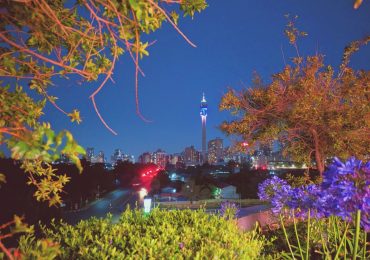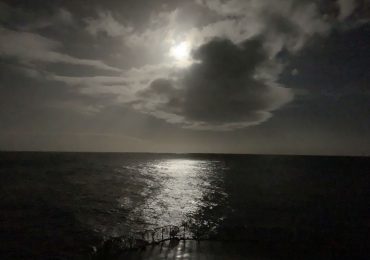The shortlist for the Short Story Day Africa Prize for Short Fiction has been announced.
The prize is worth $800 (about R10,000) and open to any African citizen or African person living in the diaspora. It has been running since 2013.
This year’s prize theme is ‘ID’, the abbreviation for ‘identity’ as well as the psychoanalytic construct of the ‘Id’, and prize adjudicators sought ‘innovative short fiction exploring identity, especially (but not limited to) the themes of gender identity and sexuality’.
‘We were impressed as never before by the multiple ways in which writers from all over the continent responded, the depth, variety and innovation of their interpretations,’ SSDA says in its press release. ‘From Benin to Ethiopia, from Morocco to South Africa, the stories on the longlist reveal uncomfortable and fascinating truths about who we are.’
The JRB and a number of volunteer judges assisted SSDA in judging the prize this year, making for a ‘flatter, more consultative and democratic’ evaluation process. A new scoring system and an extremely high standard of stories has resulted, for the first time, in a shortlist of nine stories, instead of the usual six.
The 2017 Short Story Day Africa Prize shortlist
(in alphabetical order)
- ‘The Piano Player’ by Agazit Abate (Ethiopia)
- ‘Ibinabo’ by Michael Agugom (Nigeria)
- ‘The Geography of Sunflowers’ by Michelle Angwenyi (Kenya)
- ‘Limbo by Innocent’ Chizaram Ilo (Nigeria)
- ‘Sew My Mouth’ by Cherrie Kandie (Kenya)
- ‘South of Samora’ by Farai Mudzingwa (Zimbabwe)
- ‘All Our Lives’ by Tochukwu Emmanuel Okafor (Nigeria)
- ‘The House on the Corner’ by Lester Walbrugh (South Africa)
- ‘God Skin’ by Michael Yee (South Africa)
The winners will be announced on 21 June 2018, the shortest day of the year in the southern hemisphere. This year’s SSDA anthology, ID: New Short Fiction From Africa, composed of the longlisted entries, will be launched on the same day.
Read SSDA’s comments on the shortlisted stories:
Seen here are a variety of explorations of queer sexuality—an extremely important and necessary creative intervention, given the grim march of homophobia, including in legislative forms, across the African continent. Michael Agugom charts the challenges of negotiating biracial and sexually complex identities in a small and watchful Nigerian island community in ‘Ibinabo’; and Cherrie Kandie provides a powerful and painful account of the silencing (literally) of lesbian love in urban Nairobi in ‘Sew My Mouth’. In ‘The House on the Corner’, Lester Walbrugh provides a moving interpretation of the perhaps ubiquitous ‘gay life in Cape Town’ narrative; Innocent Chizaram Ilo provides a delightfully unusual and fantastical account of heartbreak as experienced by a lesbian scarecrow in ‘Limbo’.
Michelle Angwenyi’s lyrical and hallucinatory ‘The Geography of Sunflowers’ presents heteronormative love and loss as experiences that both heighten and blur identity.
Identity is also formed through friendships and family bonds, and in Farai Mudzingwa’s delicate and moving ‘South of Samora’, a young man whose social standing is dependent on where he lives, forms a friendship with an ailing child that forces him to define himself; while Tochukwu Emmanuel Okafor’s ‘All Our Lives’ is a wry, clear-eyed, humorous and characteristically compassionate account of the identity (multiple identities, in fact) of a much-maligned community—young and disaffected men who drift into Nigerian cities in pursuit of a ‘better life’.
‘The Piano Player’ by Agazit Abate is a brilliant inversion of the ‘African abroad’ narrative as it presents snapshots of life in Addis Abada through the eyes and ears of a pianist in a luxury hotel bar, and ‘God Skin’ by Michael Yee weaves together alienation, forbidden love and intimate violence against a subtle backdrop of the scars of Liberia’s civil war.
This year’s SSDA anthology is edited by Nebila Abdulmelik, Otieno Owino and Helen Moffett, as part of the SSDA/Worldreader Editing Mentorship. As part of the mentorship, the twenty-one stories on the longlist were edited before being sent to the judges. ‘The decision to edit the stories and to engage with the authors before judging has proven to be invaluable in enabling young writers and raw talent to compete on an equal footing with their more established and experienced peers,’ SSDA says.
‘The final stories and indeed the shortlisted stories are more evenly balanced between those already making their mark in terms of publication and awards, and extremely talented writers who are new to the adventure of publishing or only just venturing into the terrain of short fiction.’
SSDA is one of the most successful short story organisations on the continent, with all of its previous anthologies receiving significant critical acclaim. Two stories from the 2013 anthology, Feast, Famine & Potluck, were shortlisted for The Caine Prize for African Writing, with that year’s SSDA winner Okwiri Oduor going on to win the award. Terra Incognita (2014) and Water (2015) also received wide praise, including reviews from the Los Angeles Review of Books, the Sunday Times and the Financial Mail. Stacy Hardy’s story ‘Involution’, published in Migrations, is shortlisted for the 2018 Caine Prize for African Writing.





